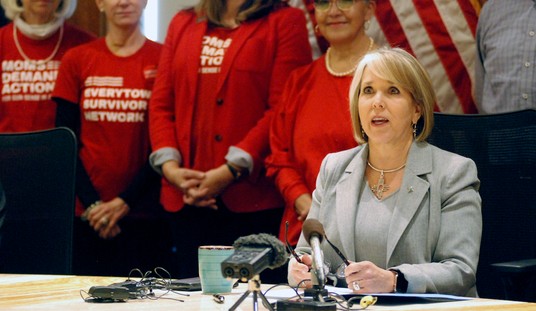The president of Gravis Marketing, the Florida-based polling firm that conducted Human Events/Gravis polls during the last election cycle reflected on the last campaign season’s trends, pivots.
“You always want to improve,” said Doug Kaplan, who has both Democrat and Republican clients for polls, automated phone calls and get-out-the vote programs. “Compared to other polling companies, larger firms, universities, the Gravis polls did better or at least as good.
Kaplan said because the firm owns its own equipment, it can act quicker than other polling outfits.
“I think because we focused on GOP primaries early on, it was easy for liberal critics to peg us as having a ‘house-bias’ for Republicans, but that bias was not there,” he said.
“There are many polls out there that are designed to tell a targeted audience what they want to here,” Kaplan said. “But, we were actually the ones delivering unwelcome news to conservatives and Republicans—if that is what the numbers were.”
One example was the governor’s race in Pennsylvania, he said.
“In January, we found Corbett losing to all three of his potential Democratic challengers by double-digits,” he said. “At the time, Republicans in the state were saying Pennsylvania governors always win reelection.” Gov. Thomas W. Corbett lost to Thomas W. Wolf by more than 300,000 votes.
“A year ago, we showed Rick Scott trailing Charlie Crist by 10 points,” he said. “Nobody in Washington seemed to know Scott was in a tough race, but we got one call from a consultant in Alexandria, he said: ‘Your poll showed what our poll showed, but we were afraid to tell anybody—can we look at your crosstabs?’”
Florida Gov. Richard L. Scott caught up to beat former governor Charles J. Crist Jr., in the general election, and the Human Events/Gravis polls tracked the moves, he said. “We were reporting in February that medical marijuana was not going to pass. Somebody had it at 80 percent.”
Turnout is key and predicting turnout is key to getting the poll right, he said.
“I’ll tell you something we did see, at least in the state of Florida, a lot of the Republicans that stayed home in 2012, is wasn’t that there were less Democrats you had more Republicans turn out in 2014 than even in 2010,” he said.
“Charlie Crist got more votes than Alex Sink did, but he still didn’t win because you had more Republicans turn out,” he said. Sink lost to Scott in 2010. “In the state of Florida Republicans absolutely swept. They assumed a majority in the State Senate, in the House. The medical marijuana amendment went down. Pretty amazing for a state that Obama won by a point.”
Kaplan said another tight race was the North Carolina Senate race between Democrat Sen. J. Kay Hagan and the Republican, state Rep. Thomas R. “Thom” Tillis, the speaker of the North Carolina House of Representatives.
In mid-October, the Human Events/Gravis poll showed Tillis leading for the first time in the campaign, 48 percent to 43 percent, he said. Tillis won 49 percent to 47 percent.
“There was a lot of negativity about the North Carolina poll, and then afterwards everybody seemed to act like it was obvious Tillis would win,” he said.
“We got tons of different negative statements towards us on the North Carolina, but to me it was pretty obvious if you look at,” he said. “I looked at it as more of a nationwide than a state-by-state election. If a state like Colorado was going to go Republican how was North Carolina going to stay Democrat. It made no sense.”
As big as the GOP wave was, it was not until September-October that it real broke, he said.
In Kentucky, with Sen. A. Mitchell McConnell versus Democrat Alison Lundergan Grimes, the senator could not shake Grimes until mid-September, but by October Tillis-Hagan and Scott-Crist were breaking for the Republicans, he said. “I really think that Ebola and ISIS really changed the landscape for making it the Republicans winning five Senate seats to them just sweeping–they swept the board.”
Looking forward to 2016, Kaplan said Republicans carry advantages and the Democrats have many questions to answer.
“Is the Obama coalition fractured? Remember the Democrats are counting on a lot. They’re counting on getting a very high percentage of the African-Americans to turn out and then a high percentage voting for them. They’re counting on young people turn out, who historically don’t turn out at even presidential elections,” he said.
“Obama might be the first president in over 100 years to win re-election and actually lose electoral votes. Think about that. To win re-election and lose your second term it’s very, very rare,” he said. “You have to go all the way back to Wilson. The point being, you saw the coalition fracture in 2012, even from 2008. Obama did worse in 2012 than he did in 2008, which is very rare for an incumbent.”
Democrats are counting on Hispanic voters, but George W. Bush did very well with Hispanics, too, he said.
“It’s complicated. They’re counting on Hilary Clinton who, don’t quote me on this, but is not a spring chicken. She’ll be 69 years old when she’s sworn in. Suppose she doesn’t run?” he asked.
“Are they going to put Elizabeth Warren or Bernie Sanders? Jim Webb—who? It’s a very weak bench, actually pretty shocking,” he said. “There is no new Obama coming.”
On the Republican side the bench is stronger, he said. “The Republicans have 10 guys that realistically could be president, from Scott Walker to Marco Rubio to Jeb Bush to Bobby Jindal, to Rand Paul, Mike Huckabee.”







Join the conversation as a VIP Member